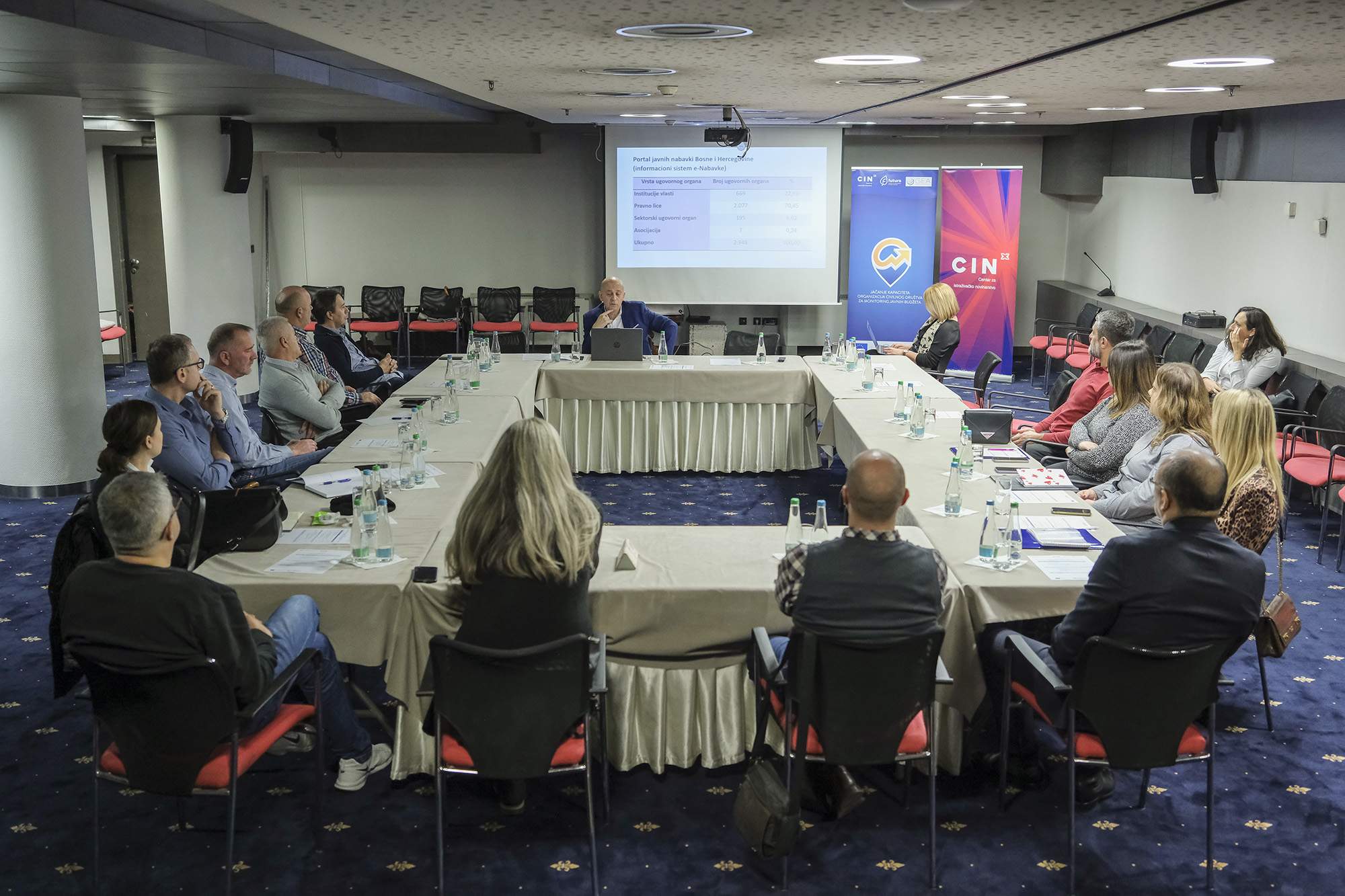The event presented research on the methods and mechanisms of public procurement procedures from the perspective of their digital transformation, aiming to achieve more transparent use of public funds.
Participants noted that the introduction of the e-Procurement system in 2014 has improved the transparency of public procurement in Bosnia and Herzegovina. Competitive and open procedures, as the two dominant methods, are now published on a centralized portal under the supervision of the Public Procurement Agency of Bosnia and Herzegovina. Furthermore, they emphasized the importance of addressing identified shortcomings and preventing system abuses.
Dejan Radić, the research author from GEA, observed in the study that the public availability of tender data has contributed to increased competition since bidders have insight into the activities of all contracting authorities, hence procedures are no longer “hidden”. He outlined the main advantages of the system: access to information, faster publication of results, efficiency and reduced human errors, data archiving, increased competition, corruption limitation, monitoring and reporting, and data integrity.
At the same time, Radić pointed out the shortcomings identified in the study: incomplete two-way communication, no use of e-Catalogs, incomplete transparency, limited access to tender documentation, absence of open data standards, and no obligation to conduct all public procurement procedures through the e-Procurement system.
“Open access to data helps citizens better understand how public resources are spent and participate in monitoring their proper allocation”, said research author Dejan Radić from the Center for Research and Studies GEA.
Radić also explained that abuses in the context of e-Procurements relate to the violation of principles such as transparency, fair competition, and justice. The study, through the analysis of tender processes, identified cartel agreements, provision of insider information, document forgery, incomplete or unclear specifications, withdrawal of bids, corruption, conflicts of interest, manipulation of the e-Procurement system, excessively divided procurements, and non-compliance with rules.
“One of the most common abuses of the e-Procurement system is the misuse of the e-Auction system, where bidders literally play with prices. This is a form of manipulation, i.e., a situation where the best bidder often withdraws after being selected, leaving room for more expensive bids”, said Radić.
According to the Public Procurement Agency of Bosnia and Herzegovina, the mentioned shortcomings are more related to deficiencies in the Law on Public Procurements of Bosnia and Herzegovina than the system itself: “The portal provides many features that are not fully utilized by contracting authorities (…) We have done as much as we could with the funds available for portal upgrades, and certainly, every year, we are moving towards the improvements”.
Event participants concluded that preventing abuses requires a clear regulatory framework, educated and ethical individuals overseeing the process, as well as technological control mechanisms capable of detecting and preventing irregularities.
The roundtable brought together key stakeholders in budgetary processes, including representatives from public institutions, civil society, and the media. This event was implemented as part of the project ‘Strengthening the Capacities of Civil Society Organizations for Monitoring Public Budgets,’ funded by the European Union and The Balkan Trust for Democracy, a project of the German Marshall Fund. The project overall is to contribute to the fight against corruption by enhancing fiscal transparency through the active involvement of civil society.







